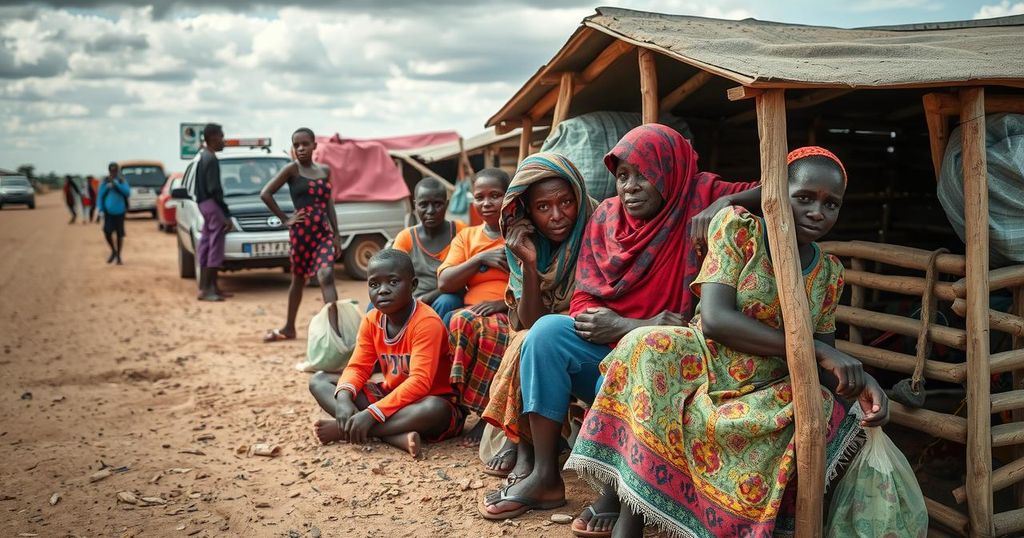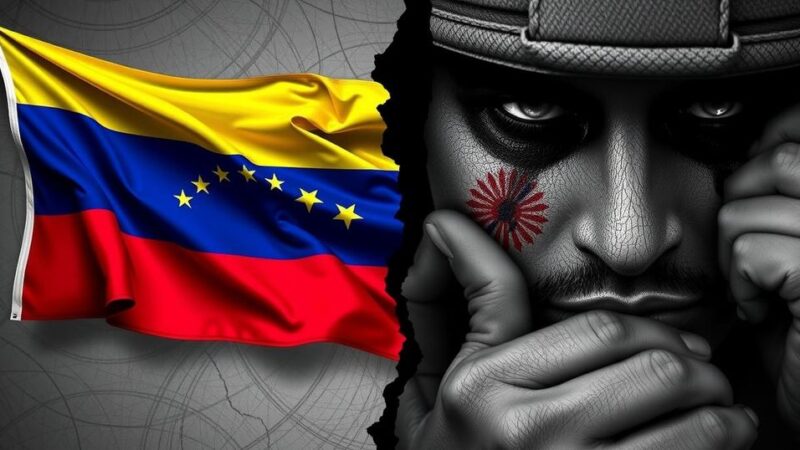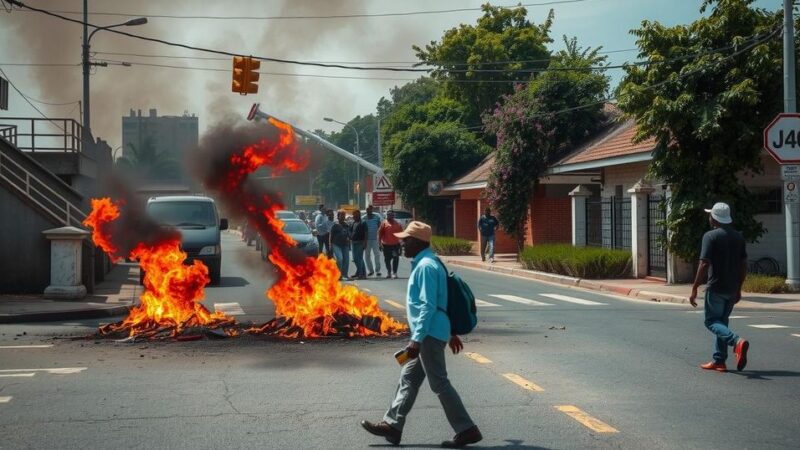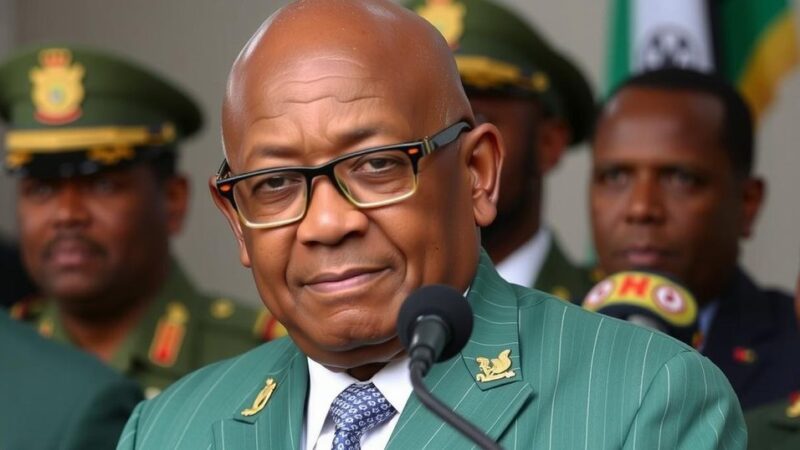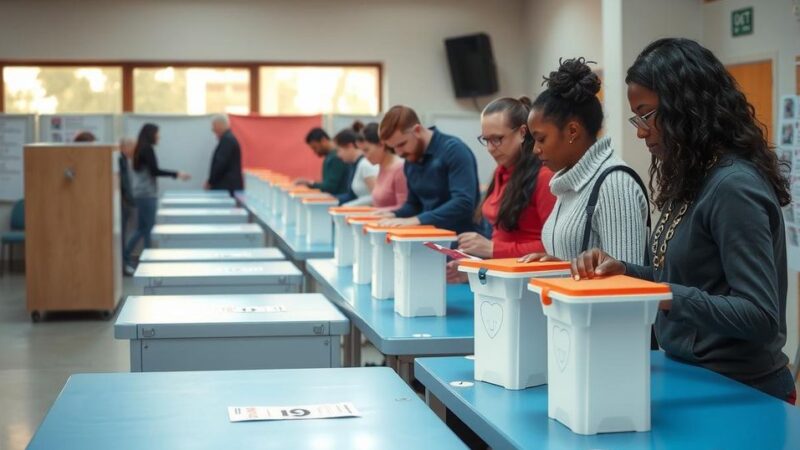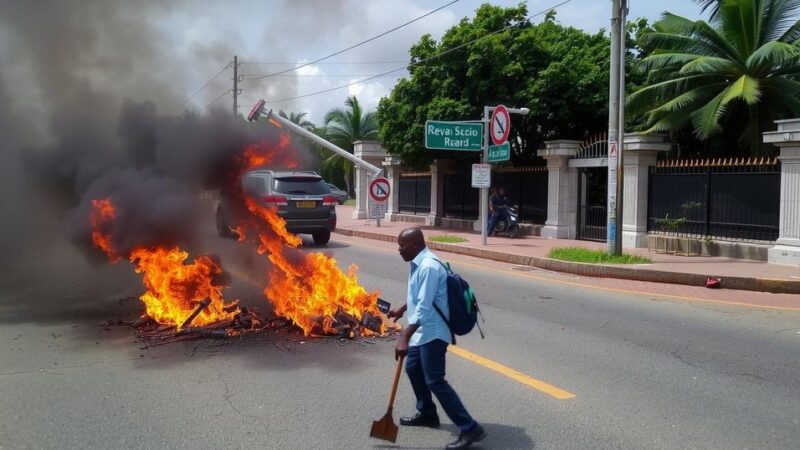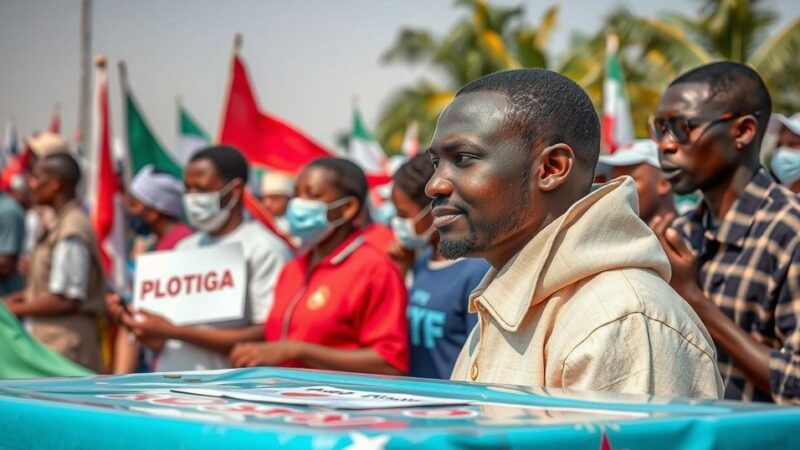Following disputed presidential elections on October 9, Mozambique has witnessed violent unrest, prompting thousands of citizens to flee to Malawi. Approximately 2,000 households have crossed the border, seeking shelter amidst escalating violence that has led to 248 deaths, including a prison break incident. The opposition leader claims electoral fraud and intends to assume the presidency, compounding the nation’s instability and humanitarian concerns.
In light of the violent unrest following the recent presidential elections in Mozambique, thousands of Mozambicans have sought refuge in neighboring Malawi. Reports from government officials indicate that since Monday, around 2,000 households have crossed into Malawi’s Nsanje district, fleeing the escalated conflict and seeking safety. Local authorities have temporarily accommodated these families in schools, while arrangements for their further assistance are being established.
The violence has intensified after the October 9 elections, leading to significant casualties, with an election monitoring group, Plataforma Decide, reporting 248 deaths, including those associated with a prison break that resulted in 33 fatalities. The unrest erupted following the announcement that Daniel Chapo from the ruling Mozambique Liberation Front (Frelimo) emerged as the election victor, a result that was vocally disputed by the main opposition leader, Venancio Mondlane, who has since declared his intention to claim the presidency on January 15.
The political situation in Mozambique has deteriorated following its presidential polls held on October 9, which have been marred by controversy and allegations of electoral fraud. The aftermath of these elections has seen widespread protests and violence, with the opposition leader Venancio Mondlane accusing the ruling party of tampering with the vote. The unrest is not only destabilizing Mozambique but has also led to significant humanitarian concerns, prompting many citizens to flee to Malawi for safety. The violent protests have disrupted daily life in Mozambique, resulting in fuel shortages and contributing to a humanitarian crisis as the government struggles to control the escalating violence. The implications of this unrest extend beyond Mozambique’s borders, influencing regional stability and raising concerns among neighboring countries about the potential for further disturbances.
In conclusion, the ongoing post-election unrest in Mozambique has driven thousands to seek refuge in Malawi amid fears for their safety. With a significant number of families fleeing the violence, there are urgent calls for measures to assist these displaced individuals. The situation reflects deep-rooted political tensions in Mozambique, highlighting the challenges of governance and electoral integrity in the region. While Malawian authorities grapple with the influx of refugees, the need for a resolution to Mozambique’s political crisis remains critical for both nations involved.
Original Source: www.aa.com.tr

